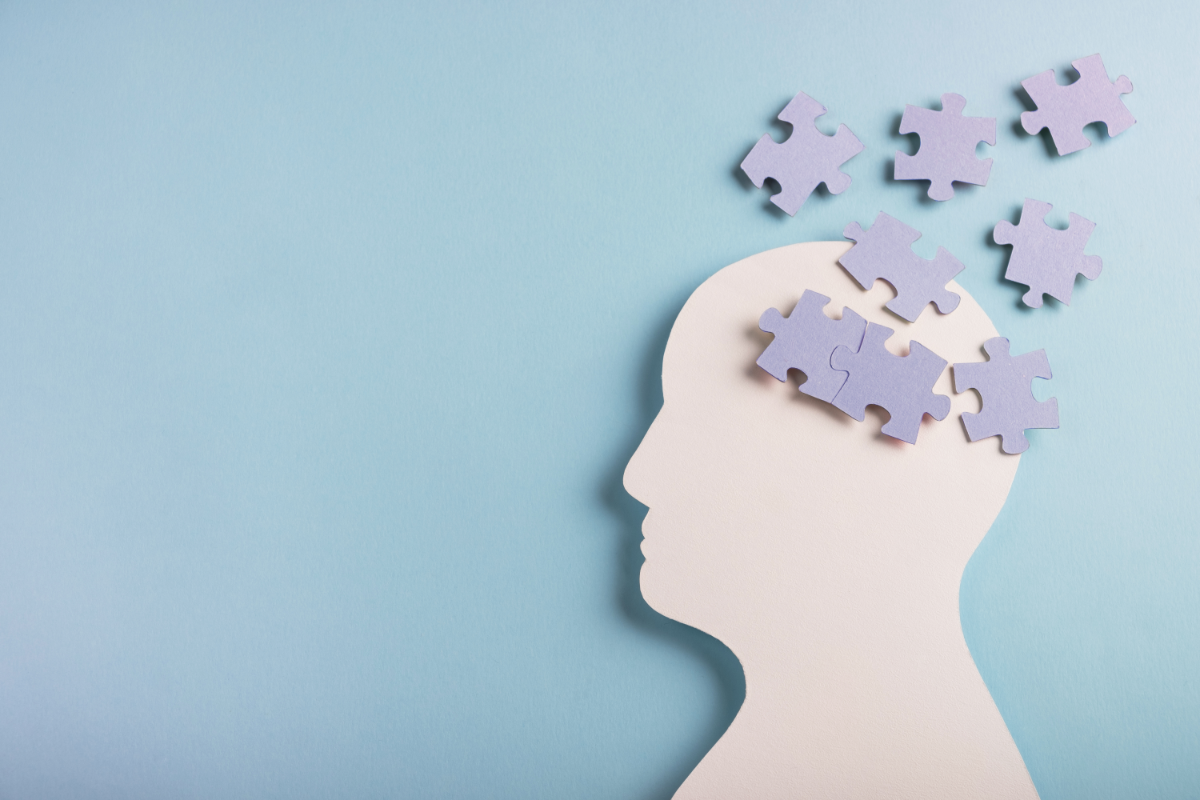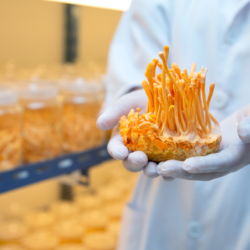Anxiety is thought to play a role in memory by mobilising part of a person’s attentional resources. People suffering from anxiety have to process both relevant information and anxiety-related information, which requires greater attentional effort. As a result, anxious subjects perform less well when the tests contain a large amount of information. This is the case, for example, with highly anxious students faced with an examination situation.
High cortisol levels: memory loss guaranteed?
Stress hormones such as cortisol play a key role in understanding the link between anxiety and memory problems. Cortisol, often called the stress hormone, is released in response to situations perceived as threatening or stressful. Normally, this hormonal mechanism helps the body to respond effectively to emergency situations. However, during prolonged exposure to anxiety-provoking situations , cortisol levels remain high, leading to a number of harmful effects on the body, particularly the brain.
Biological mechanisms involved
The brain in particular is particularly sensitive to the effects of cortisol. High levels of this hormone can disrupt communication between neurons and alter the functioning of brain areas involved in memory formation. Among these areas, the hippocampus, located in the temporal lobe of the brain, is crucial for the consolidation of long-term memory. Excess cortisol can damage the nerve cells in the hippocampus, impairing its ability to form and store new memories.
What is the link between stress and memory loss?
In addition, anxiety can induce increased activity in the amygdala, a region of the brain involved in managing emotions and responses to stress. This hyperactivity can divert the brain’s resources from memorising and recalling information, in favour of increased vigilance to threatening stimuli, real or perceived. This phenomenon explains why people suffering from anxiety may find it difficult to recall information unrelated to their anxious preoccupations.
In addition, chronic anxiety can also influence the prefrontal cortex, an area involved in executive functions such as decision-making, planning, and especially, in the context of our subject, working memory. Working memory is essential for temporarily retaining and manipulating the information needed to perform complex cognitive tasks. Reduced functionality of the prefrontal cortex, due to chronic anxiety, can therefore adversely affect this form of memory, making it difficult to concentrate and perform cognitive tasks.
Anxiety and amnesia
Anxiety and temporary amnesia share a complex and significant relationship, often underestimated in current discussions of mental health. Temporary amnesia, characterised by sudden and usually short-lived memory loss, can occur in the context of intense stress or acute anxiety disorder. This section will explore the links between anxiety and the different types of amnesia, as well as the role of trauma in memory loss.
What is the link between anxiety and temporary amnesia?
Dissociative amnesia, in particular, is a type of amnesia often associated with anxiety and stress. It manifests itself as a sudden inability to remember important personal information, far beyond a simple distraction or momentary lapse of memory. This form of amnesia is usually triggered by a stressful or traumatic event and can be interpreted as the brain’s protective response to emotional overload.
In the context of anxiety, the brain may be overwhelmed by anxious thoughts or emotional overstimulation, resulting in a temporary disruption of the ability to store new memories or access existing ones. Interestingly, although dissociative amnesia is usually short-lived, it can have a significant impact on the life of the person affected, often causing confusion and distress.
Trauma and memory loss
Traumatic experiences, whether physical or psychological, are closely linked to memory loss. In the event of trauma, the brain may react by temporarily ‘switching off’ certain functions, including memory, to protect itself. This reaction can manifest itself in episodes of amnesia, where the person is unable to remember specific events related to the trauma, or even longer periods of time.
This phenomenon is often observed in individuals suffering from post-traumatic stress disorder (PTSD), where amnesia can serve as a defence mechanism against painful or destabilising memories. PTSD-related amnesia can be particularly complex, as it involves not only gaps in autobiographical memory, but also difficulties in recalling everyday information and experiences.
Long-term memory
When we generally talk about memory, we think mainly of the ability to retrieve information. However, it is much more than that.
Memory can be broken down into three stages: encoding (learning information), storage (retaining it) and retrieval (remembering it).
-
Encoding :
Encoding is the recording of information. Human beings acquire information by using their senses(sight, smell, taste, hearing and touch), so the information recorded is sensory. The information is processed and then stored in memory. It is mainly the short-term and working memories that are called upon at this stage of the process.
Several issues arise during the encoding of information. The desire to learn the information is essential, as is concentration during the learning process. The context in which we learn information(sound, lighting, etc.) plays a major role in the recording of information.
To retain information, you need to concentrate and feel an interest in learning this new information. The emotional state in which we find ourselves, i.e. our mood and emotions, can also disrupt learning. For example, remembering the date of your own wedding is easier than remembering the date of your last hairdresser’s appointment, because the feelings you had at the hairdresser’s have nothing to do with the feelings you had at your wedding. But the most important thing is forgetting, which we don’t think about enough. Forgetting a single piece of information when learning can lead to forgetting other information that was previously processed but is now deemed useless.
Depending on the individual, after forty-five minutes to two hours spent on the same subject, the learning mechanism can reach saturation point. Our brain is unable to concentrate beyond this limit. Taking a break or changing subject to stimulate our interest with something new is essential.
-
Storage:
Storage is the long-term retention of previously learned information. The brain will repeat certain information without realising it, without having previously learned it by conscious repetition. This is known as consolidation.
In effect, some of the stored information reaches long-term memory and can be reactivated. As with learning, emotions and feelings have a positive or negative impact at this stage of the memory process. The storage of information is characterised by a specific network of neurons associated with the memory. It occurs in several places in the brain, such as the hippocampus(the area of the brain that stores memories temporarily), but is stored in the cortex over the long term.
When information is processed, proteins are produced and sent to presynaptic and postsynaptic neurons. They strengthen the synapses(places where neurons communicate) and create new synapses.
-
Reproduction :
This is information that consists of recalling it, remembering it. Recall can be spontaneous or not. Our memory is reconstructive. In other words,a memory is obtained from different elements scattered around the brain. It’s not like taking a photo out of an album without altering it. If it is difficult to reconstruct the memory, you need to use clues and context to help you remember. In the case of amnesia, this stage of the memory process is defective, but this can also be the case for storage.
Short-term memory
Sensory and short-term memories are superficial and do not require any learning, since their duration varies from a few fractions of a second to a minute and a half. They are in constant demand:
- A face you see in the street
- The colour of a passing car
- The time we’ve just looked at, etc.
Short-term memory receives information from either sensory memory or long-term memory. In the first case, information from the sensory memory that has been sent to the short-term memory will be processed and used if necessary, then transmitted to the long-term memory or degraded and lost, depending on its importance. In the second case, information from long-term memory can be reused by short-term memory, often to analyse information from sensory memory.
Sensory memory:
This is often equated with the process of perception, because it lasts no more than two seconds. But it is an unavoidable stage for information entering short-term memory. It is brief, equivalent to the time it takes to perceive a stimulus (an element capable of triggering a phenomenon in the organism, in this case a nervous phenomenon). It concerns all the information perceived by our senses. It only notices what is around us, the elements of interest will be analysed by the short-term memory. Sensory memory often functions without our knowledge, enabling us to remember faces, places, voices, etc.
There are 5 types of sensory memory, because we have 5 senses, but we mainly use two of them:
-
Visual (or iconic) sensory memory:
This keeps information in the visual register. For example, it facilitates the visualisation of a film made up of a series of images.
-
Auditory (or echoeic) sensory memory:
This maintains information in the auditory register of sensory memory. We use it to remember the beginning of a sentence so that we can write it down, for example.
Some plants with an effect on memory and memory disorders:
-
Bacopa :
This plant improves cognitive faculties and memory in young people in good health. It improves short- and long-term memory, as well as antioxidant activity in the cerebral cortex and hippocampus.
Bacopa also increases cerebral plasticity and stimulates neuronal dendritic growth. It improves the synaptic efficiency associated with learning and strengthens hippocampal synapses, which play an essential role in learning and memory formation.
-
Gogi berries:
Goji berries are often associated with beneficial properties for memory and learning abilities. Rich in antioxidants, vitamins and minerals, these small, tart berries may help cognitive function by protecting neurons from oxidative damage and stimulating neuroplasticity.
-
Ginkgo :
Ginkgo is a plant known to improve mental performance (alertness and short-term memory) in individuals suffering from cognitive disorders such as dementia(Alzheimer’s disease, multi-infarct dementia or mixed dementia) and cerebral insufficiency.
-
Saffron:
Saffron is renowned for its protective effects against memory disorders induced by chronic nervous tension. Saffron‘s active compounds, such as crocin and safranal, are being studied for their neuroprotective properties and their potential to modulate the effects of stress on the brain. These components could help to prevent or reduce memory impairment associated with prolonged exposure to stress.
-
Rhodiola :
Rhodiola, also known as Rhodiola rosea, is a plant known for its adaptogenic properties. It is often cited for its ability to improve memory, attention and learning processes. The bioactive compounds present in Rhodiola, such as rosavins and salidrosides, can have a positive influence on cognitive functions.
-
Coriander essential oil:
Coriander essential oil, when inhaled, can help improve memory. This method of administering Coriander oil allows the active compounds in the oil to reach the brain quickly via the olfactory system, potentially influencing cognitive function. Used with care, it could be a useful supplement for stimulating memory.
-
Kudzu :
Kudzu, a medicinal plant, supports memory and learning by increasing the concentration of glutamate in the hippocampus, a key area of the brain for these cognitive functions. This increase helps to improve cerebral concentration. It is advisable to consult a health professional before use.
-
Licorice :
Liquorice, known for its various medicinal properties, plays a particular role in stimulating memory thanks to one of its active components: glabridine. This compound has an anticholinergic effect, which means it acts by modulating the activity of acetylcholine, a neurotransmitter essential to the memorisation and learning process. In the case of liquorice and glabridine, studies have shown that their impact on memory may be linked to a subtle modulation of cholinergic activity, thus contributing to a better neurochemical balance in the brain. This balance could potentially help stabilise memory and learning processes, especially in contexts where neurochemical imbalance plays a role in cognitive deficits.







